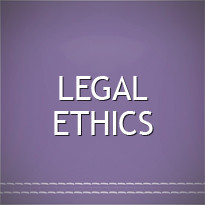A.M. No. 145 – 100 Phil. 610 – Legal Ethics – Lawyer may be disbarred even if transgression is not one enumerated by law
In 1952, Atty. Anacleto Aspiras introduced himself as a single man to Josefina Mortel. Josefina believed it and she let Anacleto court her. Anacleto, with flowery words, promised to marry Mortel. With this promise, Mortel agreed to have carnal knowledge with him. Later, Anacleto persuaded Mortel to go to Manila so that they could marry there. Mortel complied. However, Anacleto did not secure the marriage license with Mortel, instead he let Cesar Aspiras, whom he introduced to Mortel as his nephew, secure it with Mortel. Further, in the marriage ceremony, Anacleto made Mortel believe that Cesar will be his proxy in the wedding. So it happened that Mortel married Cesar – who turned out to be Anacleto’s son, worse, Cesar was a minor. Worst still, after Cesar’s and Mortel’s marriage, Anacleto continued to cohabit and have carnal knowledge with Mortel until the latter got pregnant, and until the latter found out that Anacleto is married and he has a son, Cesar.
ISSUE: Whether or not Anacleto should be disbarred.
HELD: Yes. Though it may be said that Anacleto’s moral transgression did not amount to crime nor is it one of those enumerated by statute still his moral delinquency as proved by the facts as aggravated by his mockery of marriage which is an inviolable social institution and his corruption of his minor son to marry Mortel just so he could redeem his promise of marriage to Mortel – all these concur to Anacleto being unfit to continue being a member of the legal profession. The Supreme Court ordered his disbarment.


